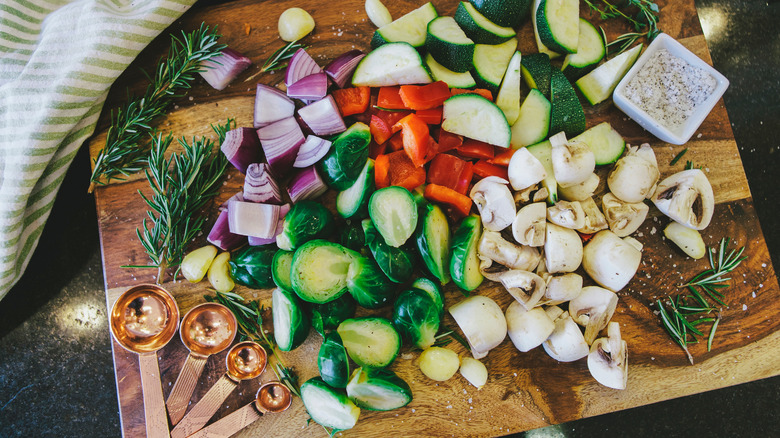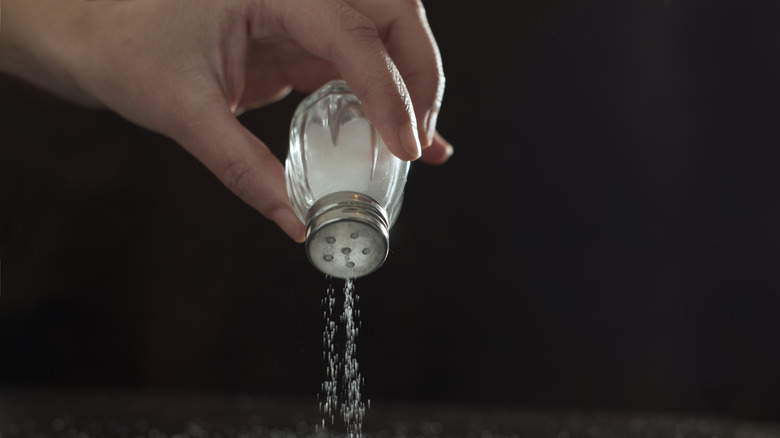You've Been Seasoning Vegetables All Wrong
When it comes to cooking, there are so many factors to consider. If you're cooking on the stovetop, what type of pan are you using, and how high of a heat? If you're cooking in the oven, what temperature do you set it to for which foods? What knives and gear are you using and are they the best ones for the job? How are you slicing or dicing vegetables, what temperature are you cooking your meat to, and are you letting it rest?
And none of these factors even touches on one of the most important aspects of cooking: the flavor. When it comes to seasoning, there are a myriad of other issues to consider: What type of salt to use? How fresh are the spices you're using? It's a lot to think about. And when it comes to seasoning vegetables specifically, there's one mistake you might be making — but it's easy to correct. Read on to find out what it is.
You might be seasoning your vegetables too soon
From adding an adequate amount of salt to meat to checking the freshness of dried herbs and spices, ensuring a flavorful dish is the mark of an accomplished cook. But even those of us who have a deft hand with seasoning might be making a common mistake — and that's seasoning vegetables too soon.
According to The Kitchn, when cooking vegetables, it's best to wait until midway through cooking to add salt and dried herbs. As Charles W. Hunter III, author of the recipe blog The Salted Table, told the website, adding dried spices halfway through the cooking process helps keep them from burning (via The Kitchn). Similarly, Hunter says, it's a good idea to add fresh herbs later in the cooking process, so that they maintain their fresh, delicate flavors and some of their color.
Hunter doesn't specify why adding salt later is a good idea, but we have a guess: Firstly, since adding salt to items that contain water makes them leach that water (via Fine Cooking), vegetables will brown better in the absence of salt. Also, it will be easier to tell how much salt your vegetables will need once they release some water and come down in volume, making sure you don't under-salt a huge mass of veggies or over-salt a bunch that end up cooking down to very little.
So there you have it: When it comes to seasoning vegetables, the devil's in the details. Wait until halfway through cooking, and your tastebuds will be amply rewarded.

